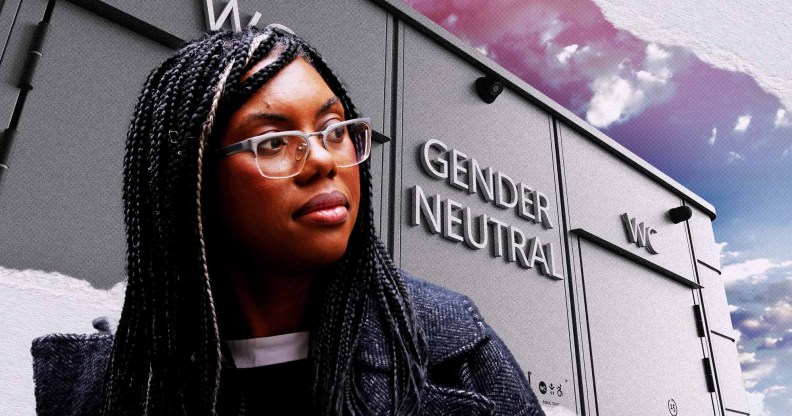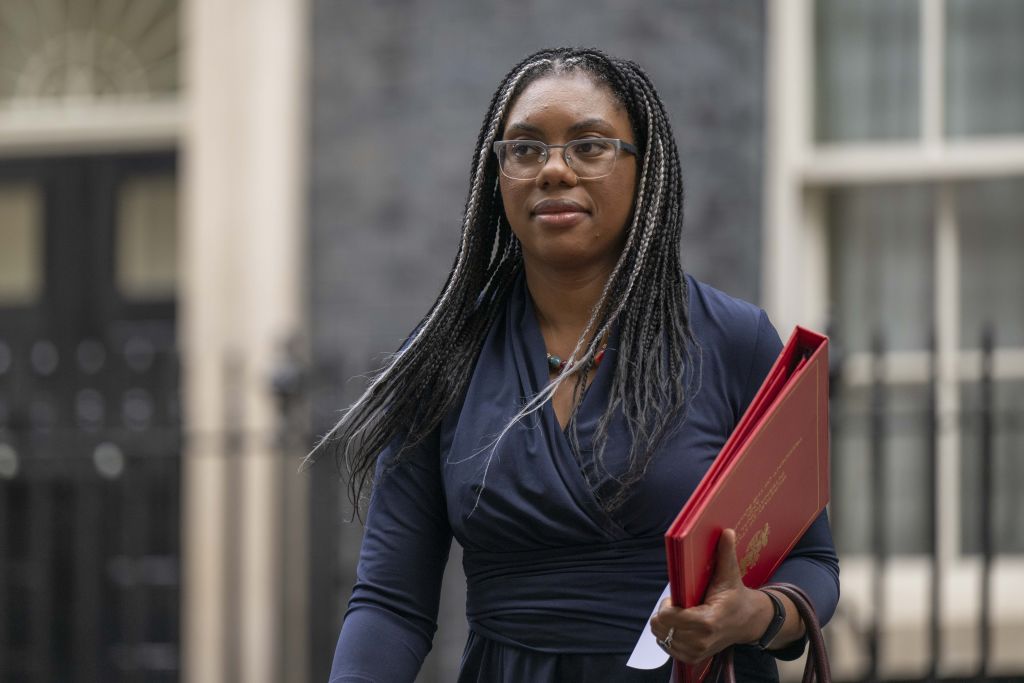Government crackdown on gender-neutral toilets goes against findings of its own study

Women and equalities minister Kemi Badenoch has said gender neutral toilets removes a ‘fundamental right for women and girls.’ (Credit: Getty Images)
Government plans to move away from gender-neutral toilets and ensure every new public building in the UK has separate facilities for males and females, contradicts the findings of a study it conducted.
According to a government consultation on toilet provisions, which more than 17,500 people responded to in 2021, most responses (83 per cent) were supportive of gender-neutral toilets, while just 12 per cent were in favour single-sex toilets.
Six per cent of respondents supported gender-neutral toilets in addition to single-sex ones.
Despite these findings, the government is set to enforce rules which will mandate companies building new public buildings to provide single-sex toilets, with gender-neutral loos alone allegedly permitted only in rare circumstances.
The policy, announced on Sunday (13 August), states that new non-residential buildings in England must have separate male and female toilets. The Department for Levelling Up told PinkNews the policy did not “preclude gender neutral facilities, they simply require that single-sex facilities are provided as a minimum”.
It also highlighted the difference between gender-neutral toilets (where all genders share the same space for waiting and hand-washing) and unisex toilets (self-contained toilets in a room with a sink, which can be used by all genders).
“The change comes amid dignity and privacy concerns from women and elderly people who feel they are being unfairly disadvantaged as publicly accessible toilets are increasingly being converted into gender-neutral facilities,” a statement reads.
The government consultation on toilet provision, which ran from 31 October 2020 to 26 February 2021, found that 79 per cent of responses discussed safety concerns for trans and non-binary people in regards to public toilets.
Safety concerns for women were mentioned in three-quarters of responses, while 88 per cent of people specifically mentioned concerns about the safety of lesbians, Black, and butch women.
The consultation report made it clear that the call for evidence did not ask questions or ask respondents to pick one toilet type over another, which means the results on what proportion of the public supports gender-neutral toilets were not definitive.
“The analysis could be read as suggesting that only two per cent of respondents were supportive of disabled persons’ toilets,” the report read.
“We consider it more likely to be the case that people simply did not choose to comment on disabled persons’ toilets in their responses on the presumption that [these] would continue to be provided – as is currently the case.”
A recent YouGov opinion tracker found that, as of 9 August, 50 per cent of Brits oppose gender-neutral toilets, while 40 per cent support having gender-neutral toilets as well as separate toilets for men and women.
It is also worth noting that the government’s consultation took place between 2020 and 2021, and since then anti-trans sentiment in the UK has risen dramatically, which might affect public opinion on toilet provision.
A poll released on 11 August revealed that an increasing number of Brits hold negative views towards trans people, with 39 per cent of those surveyed “personally view” trans people in a positive light.
Meanwhile, a third of respondents said their feelings on trans people were neutral, and 25 per cent had negative feelings – up from 16 per cent in 2021.
Baroness Scott, parliamentary under-secretary of state for faith and communities, told PinkNews in a statement: “It is extremely important women can feel comfortable when using public facilities, so we are taking action to restore dignity and privacy at the centre of all future provision.
“These proposals will mean separate toilets for men and women, as well as self-contained toilets for those that need them, become a requirement for every new building across England.”

Women and equalities minister Kemi Badenoch said in a statement about the government’s planned toilet policy: “It is important that everybody has privacy and dignity when using public facilities. Yet the move towards ‘gender-neutral’ toilets has removed this fundamental right for women and girls.
“These proposals will ensure every new building in England is required to provide separate male and female or unisex facilities and publish guidance to explain the difference, protecting the dignity, privacy and safety of all.”
In a Sunday Telegraph column about the toilet policy, Badenoch stated that a unisex toilet would be a benefit to both trans and cis people.
“Providing a unisex option means transgender people have a private facility where they won’t be subject to invasive questions, and they should be accessible so disabled people can use them with greater ease,” she wrote.
Badenoch previously signalled her stance on removing gender-neutral toilets in 2022 during the Tory leadership campaign.
The minister also hit the headlines for allegedly asking the Equality and Human Rights Commission (EHRC) for advice on amending the 2010 Equality Act to define sex as “biological” sex in April, a move which LGBTQ+ activists described as alarming.
In response, EHRC chairwoman Baroness Kishwer Falkner wrote that there “is no straightforward balance”, and that defining sex as “biological sex” would “bring greater legal clarity” in eight areas.
“On balance, we believe that redefining ‘sex’… to mean biological sex would create rationalisations, simplifications, clarity and/or reductions in risk for maternity services, providers and users of other services, gay and lesbian associations, sports organisers and employers. It therefore merits further consideration,” Falkner added.
How did this story make you feel?

